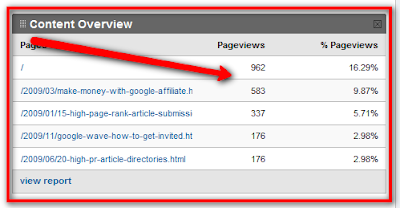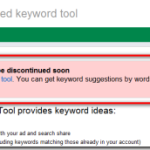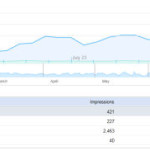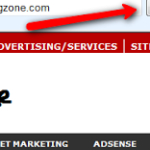 What is the one thing that serious bloggers will often recommend when writing a post? Write for your readers, right? Don’t do this, don’t do that, and everything else in between. Most of these suggestions are correct and you should really avoid cluttering your pages and content with too much ads, excessive keywords and really write for humans and not for search engines. If you can do both, all the better, but first write for your readers.
What is the one thing that serious bloggers will often recommend when writing a post? Write for your readers, right? Don’t do this, don’t do that, and everything else in between. Most of these suggestions are correct and you should really avoid cluttering your pages and content with too much ads, excessive keywords and really write for humans and not for search engines. If you can do both, all the better, but first write for your readers.
How to use your Google’s Analytics data to improve your revenue potential?
As time goes by, a post will eventually get old, and most likely, your loyal readers may have already seen them and maybe even commented on them. Your loyal readers are the ones that are following you and waiting for that next killer post:) If your content is full of hurdles (ads), especially those that are intrusive, it is possible that you might just tick your loyal readers away, and once that happens, it could be the beginning of an ending. But then you may ask, where the h*ll should I put my affiliate links and all those goodies to make money? Well, here is where Google Analytics comes in.
Most post that are visited by search users are already indexed, cached and all that. It is therefore more likely that many of these posts are old post and have already been read many times over by your loyal readers. By looking at your Google analytics data, you can see from your report traffic that comes from search engines. In this report you will be able to identify which posts are attracting most of your search engine traffic.

Here is an example. I receive 55% of my traffic from search engines. When I break this data down, it will identify my posts that are highly visited by search engine users. This is where I use Google Analytics to leverage on my top searches. When analyzing your data, you can see which articles drive you the most traffic. You can then verify if you can use these articles to potentially monetize them. Search for words that you can link to an affiliate link for example or anything else that may come in to your mind. You can even display a banner or something similar at that end of the post. Just make sure that it is relevant to your articles topic. By doing this, you avoid cluttering your new posts with ads and at the same time leveraging your search engine traffic.

So, have you ever put this little trick into action before? How did it go? Let us have your thoughts.









Comments are closed.